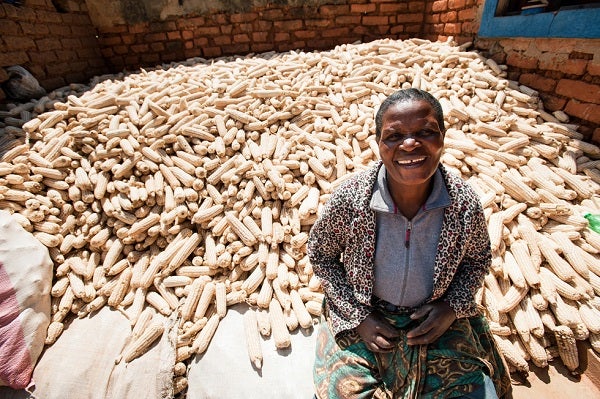Interest Payments on Mobile Wallets: Bank of Tanzania’s Approach
One of the ongoing debates in the digital financial services (DFS) industry is whether customers should be able to earn interest on mobile money wallets. CGAP first argued in 2011 that interest payments should be allowed and would be a significant step in ensuring that digital finance leads to greater financial inclusion. In 2014, Tigo Pesa in Tanzania became the first mobile money service to pay interest (or rather, share “profits”), and since then others have followed suit.
The road toward interest payments has not been smooth. This blog and the next one in this series follow the different paths regulators took in Tanzania and Ghana toward allowing interest payments and key decision points along the way.
When the Bank of Tanzania first considered what to do with the interest mobile network operators (MNOs) were earning on trust accounts held by banks, it decided on one overriding principle: The benefit of this interest should go directly to the customer.

Kennedy Komba, a senior adviser of national payment systems at the Bank of Tanzania (and currently on secondment to the Alliance for Financial Inclusion), told CGAP that although the Bank of Tanzania considered various options, it ultimately decided to be flexible and invite proposals from the MNOs themselves on how they intended to use the interest to directly benefit customers. In February 2014, the Bank of Tanzania issued a circular to this effect and asked MNOs to submit applications on how to use these funds.
Some of the initial applications from MNOs were rejected, mostly because they proposed corporate social responsibility (CSR) activities such as funding hospitals and schools (similar to the work of the M-PESA Foundation in Kenya, which is funded by interest from trust accounts). These CSR activities would include a fair amount of marketing and promotion for the telcos themselves, and the Bank of Tanzania decided that this did not meet the criteria of directly benefiting customers.
Ultimately, Tigo Pesa applied for and was granted approval to distribute the income earned directly to customers. Its first payment of $8.7 million in September 2014 (representing 3.5 years of income earned at an average of 7–9% per annum) made headlines as the first such payout globally. Many regulators around the world have not allowed e-money accounts to earn interest in an effort to distinguish these payments’ services from savings accounts (which should presumably be offered by a bank). How did the Bank of Tanzania justify this somewhat controversial decision?
Komba tells us that the Bank of Tanzania was very clear that Tigo was not allowed to advertise the mobile money wallet as a savings account and was not even allowed to promise a specific interest rate. Instead, it could discuss only historic “distribution of profits in trust accounts,” somewhat similar to the U.S. Securities and Exchange Commission’s requirement that investment funds need to tell investors that a fund’s past performance does not necessarily predict future results. Some of Tigo Pesa’s initial advertising (such as this video) used the word “Wekeza” (Swahili for “invest”), prompting the Bank of Tanzania to tell Tigo that it could not use the word. As MNOs cannot technically take deposits, let alone offer investment products, they cannot ask people to invest with them.
Despite these precautions, banks in Tanzania were unhappy that telcos were now able to offer this tangible benefit to customers. They complained that this would result in massive movement of funds out of the banking sector and into mobile money wallets (leading to unintended consequences, including raising the cost of funds for banks and eventually higher interest rates on loans). However, after one-and-a-half years, there is no indication that this has happened, and the banks have not submitted any evidence to the Bank of Tanzania to this effect. In fact, Komba notes that there has been an increase in bank accounts during this period.
Komba feels that far from having any negative impact in Tanzania, Tigo’s profit distribution has had a positive effect in building customer trust and confidence in mobile money. Both Airtel Money and Vodacom M-Pesa have started sharing interest income on trust accounts in a similar way, although the amounts are calculated differently. While Tigo’s payout is based on average balances, Vodacom’s is based on level of activity.
Komba’s advice to other regulators?
“Don’t be too prescriptive. If you are, it is much harder to change,” he said. “Our approach was neutral and open. Since we’ve been flexible, we have room to call for other options if we think this is needed in the future.”




Comments
Have you heard that the
Have you heard that the central bank of Kenya has authorized the payment of interest on wallets?
I was aware for Ghana and Tanzania. In Ghana, 80% of the interests the MNO is earning on trust account should be paid to the final customer (wallet owner).
Add new comment